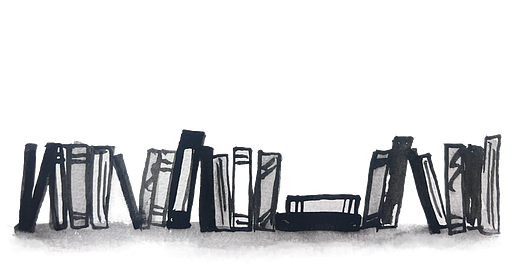As a kid who grew up in the early 2000s, I can fondly recall those long, hot summers stretched like rubber bands between school years: those days, packed with everything from swim team practices and Wii bowling to Webkinz and bike rides, were never complete without sprawling stacks of books at the local public library. Balancing on my tip-toes at the library checkout counter, I would beam with anticipation as the librarian handed me the next Harry Potter or Lord of the Rings. I could often be found devouring page after page on sluggish afternoons, for reading was, and still is, a gift that brings magic to my life—it especially marked my early childhood years, laying the earliest foundations for a life of brimming intellectual curiosity.
When I returned home this past summer, I eagerly held my semester-long “to-read list” with me as I walked down the nostalgic, cracked sidewalk to my childhood public library. Methodically perusing its broad aisles, I quickly realized that very few of my bucket-list books were on the shelves. V.S. Naipaul, Nabokov, and Ocean Vuong were nowhere to be found amongst the various vampire and young adult series; my public library was not the haven I remembered it to be. Computers and video games outnumbered novels, and the wooden chairs and bean bags, once packed with bored nine-year-olds, now sat empty. Scattered movie posters and haphazard stacks of celebrity tabloids made the public library seem as eerie as a ghost town.
Suburban America’s desertion of the public library is a window into the larger problem at hand: a cultural shift that has diluted the luxury of reading in favor of fast entertainment. As a babysitter and summer camp counselor, I’ve witnessed the younger generation trade novels for TikTok, their attention spans gradually waning. Sitting still for even a full-length movie, much less spending an afternoon reading, without reaching for one’s phone has now become difficult for many. What will become of this “iPad kid” generation, who, even at restaurants and in line for coffee, instinctively revert to scrolling on their phones?
America’s youth have stopped reading novels, and understandably so: with the Internet and all its tempting distractions at our fingertips, it’s hard for us to allocate valuable free time to reading books. I have found this especially true in my Southern hometown. The South, already notorious for its “food deserts,” is increasingly becoming an intellectual desert. Just as McDonald’s and Wendy’s are not meant to sustain the human body, so too will Wattpad fanfiction and young adult comics not broaden the depths of a young person’s mind. Yet, establishing a revival of literature, like going on a diet, requires discipline. Reading is a habit that, once developed, can be done with more and more ease. To enlighten the starved minds of our youth with the gift of Fredrick Douglass, Edith Wharton, and Jack London, we must tread this crisis carefully, mending the gaps in literacy and attention spans with the delicacy and efficiency of surgeons while, prodding and poking at the real flesh of the human experience.
Suburban America’s desertion of the public library is a window into the larger problem at hand: a cultural shift that has diluted the luxury of reading in favor of fast entertainment.
We are selling our youth short if all we can provide them is Meta’s brightly-colored “For You” page. Reading can teach us, as in The Lord of the Rings, that sometimes it is necessary to leave the comfort of our current mundane existence, cast ourselves into the deep, and challenge ourselves to think about the greater moral dimensions of our existence. Though a long, painful read, Dostoevsky’s The Brothers Karamazov asks us to examine the meaning of human suffering; other novels challenge our preconceived notions of race, class, marriage, and religion. Reading is meditative; it slowly elevates our souls to ever-greater heights, paragraph by paragraph.
The enlightenment which comes through reading demands that we offer up our time. No longer should we allow teenagers to scrape through high school with Spark Notes; we must call them higher, asking them to spend their hours diving into the depths of novels. By incorporating time to read novels during the school day, reconstructing syllabi, demanding summer and outside reading, and thoroughly testing kids on reading comprehension, we can help them begin to encounter life through literature.
Time need not be sacrificed only by young readers, but by us as well. Let us look beyond the miles-long stacks of Widener and into the gaping chasm between us and the next generation. These “iPad kids” are our future politicians, lawyers, and doctors. It is they who will be teaching literature to our children and caring for us in our old age. As we march forth into our careers, let us remain conscious of our responsibility to create an environment rich in learning, far removed from the distractions of modern media. Today’s youth have a right to the full abundance of the human experience, and we cannot remain bystanders to the debasement of their education.
JANE AUSTEN
A version of this article originally appeared in Forever Young, the December 2024 print issue of the Salient.



